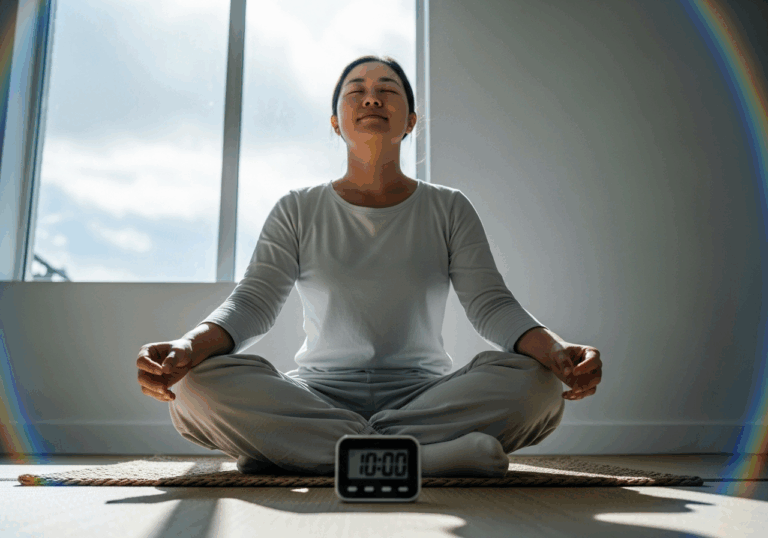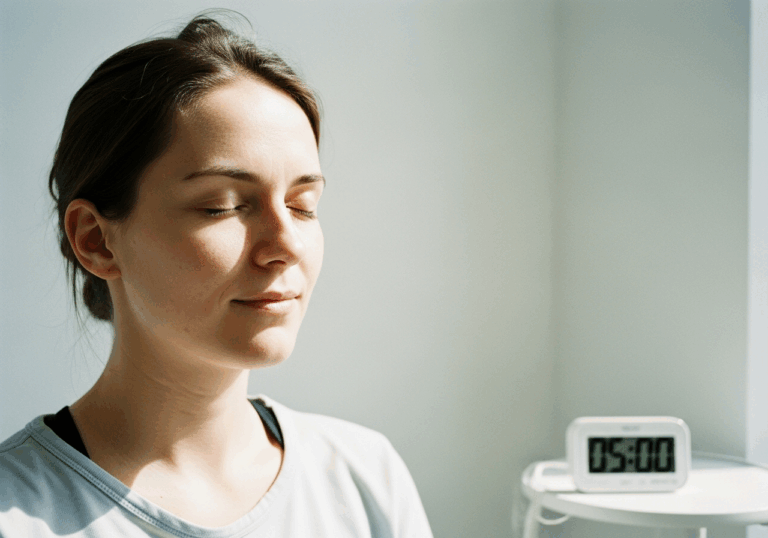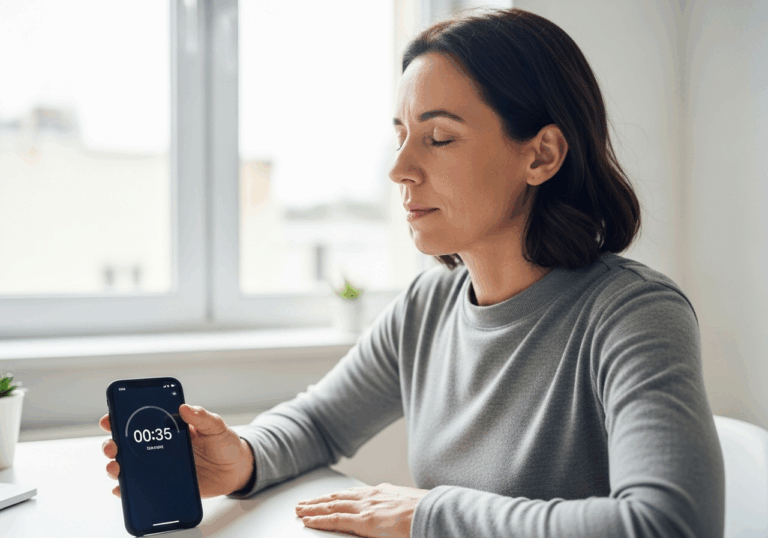Science-Backed Tips
Transform Anxiety with Sophrology Techniques
54% reduction in anxiety through a 4-week program.
📊 Did you know?
💡 Why It Matters
1️⃣
Structured grounding techniques can provide substantial relief for individuals with moderate-to-severe anxiety.
2️⃣
The significant reduction in HADS-A scores suggests improved overall mental health and quality of life.
3️⃣
Sophrology may serve as an effective alternative or complement to traditional psychoeducation for anxiety management.
✅ Try These Micro-Tips
🎯
Engage in 12 sophrology sessions over 4 weeks to experience anxiety reduction.
🎯
Practice sensory-attentive exercises for at least 20 minutes daily.
🎯
Incorporate grounding techniques into your routine to enhance mood.
🎯
Monitor your HADS-A scores before and after the program to track progress.
📚 The study
What makes these findings particularly noteworthy is the emphasis on structured grounding techniques that utilize active sensory awareness. This approach not only led to significant reductions in anxiety but also enhanced overall mood, suggesting that sophrology could serve as a powerful alternative or complement to traditional psychoeducation methods for anxiety management.
For those seeking relief from anxiety, this study highlights the potential of sophrology as a viable option, offering a pathway to improved mental health and quality of life. The structured nature of the program, focusing on sensory-attentive presence, provides a unique and effective strategy for individuals looking to regain control over their anxiety and enhance their emotional well-being.
❓ Frequently Asked Questions ❓
Learn more
What is sophrology?
Sophrology is a relaxation technique that combines elements of mindfulness, breathing exercises, and body awareness. It aims to enhance mental well-being and reduce anxiety through structured grounding practices.
How effective is the sophrology-based program for anxiety?
The program demonstrated a 54% reduction in anxiety levels, as indicated by a drop in HADS-A scores from approximately 7.6 to 4.1. This significant decrease suggests that sophrology can be an effective method for managing moderate-to-severe anxiety.
How many sessions are included in the sophrology program?
The sophrology program consists of 12 sessions conducted over a span of 4 weeks. Participants engage in structured exercises designed to promote relaxation and sensory awareness.
What is the HADS-A score?
The HADS-A (Hospital Anxiety and Depression Scale – Anxiety) score is a tool used to assess anxiety levels in individuals. A lower score indicates reduced anxiety, making it a useful measure for evaluating the effectiveness of interventions like sophrology.
Can sophrology be combined with other treatments for anxiety?
Yes, sophrology can serve as an effective alternative or complement to traditional psychoeducation and other therapeutic approaches. Integrating sophrology into a broader treatment plan may enhance overall mental health outcomes.
How long should I practice sensory-attentive exercises daily?
It is recommended to practice sensory-attentive exercises for at least 20 minutes each day. Consistent practice can help reinforce the benefits of grounding and relaxation techniques.
What improvements can I expect from participating in the program?
Participants can expect significant reductions in anxiety and depressive symptoms, as evidenced by the study’s findings. Additionally, improvements in overall mood and quality of life are likely outcomes.
How do I monitor my progress during the program?
You can track your progress by monitoring your HADS-A scores before and after completing the program. This will help you assess the effectiveness of the sophrology sessions on your anxiety levels.
Is the sophrology program suitable for everyone?
While sophrology can benefit many individuals, it is particularly designed for those experiencing moderate-to-severe anxiety. It is advisable to consult with a healthcare professional to determine if this program is appropriate for your specific needs.
What are grounding techniques in sophrology?
Grounding techniques in sophrology involve active sensory awareness practices that help individuals connect with their body and surroundings. These techniques are designed to promote relaxation and reduce anxiety by focusing on the present moment.





